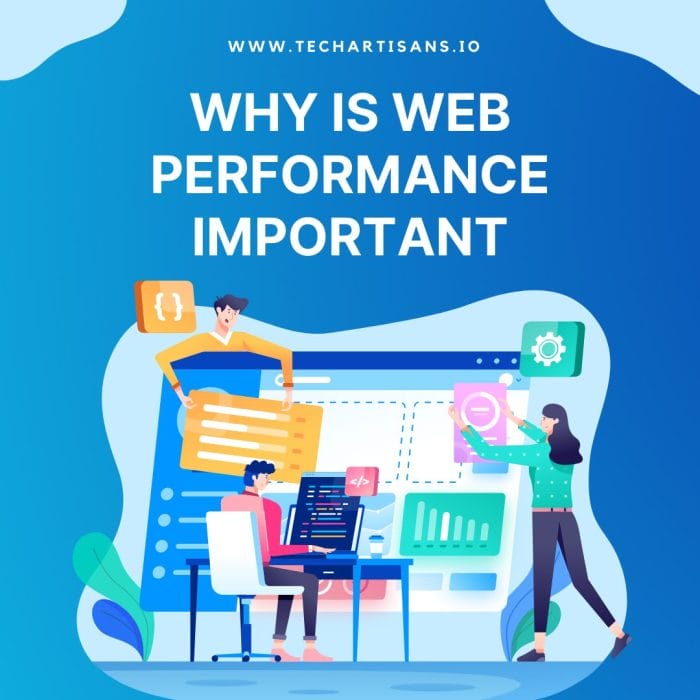Web performance, or site speed, has become the defining factor for success in the digital age. It is a critical component in the user experience, affecting everything from engagement to conversion rates. In an era where milliseconds can make a difference, web performance is not just about speed, it is about survival. In this blog, we will explore why web performance is important and how it can impact businesses and their customers.
Why is Web Performance Important
Web performance is the backbone of user satisfaction when interacting with a website. It dictates how quickly users can access information, enhancing their overall experience and satisfaction, and consequently influencing their loyalty and engagement with a business.
User Experience Paradigm
The User Experience Paradigm is a lens through which we examine the interaction between users and a website. It encompasses all aspects of a user’s perception, including efficiency, ease of use, and overall satisfaction, when navigating a website. Improved web performance directly amplifies these aspects, creating a seamless and positive user experience.
Web Performance Impact on User Experience
Web performance directly shapes user experience by determining the speed and ease with which content is delivered. A blazing-fast site captivates users, reduces bounce rates, and maintains engagement by providing the needed information promptly. Conversely, slow load times can lead to user frustration, abandonment, and ultimately lost opportunities for businesses.
Loading Times and User Engagement
Loading times mentally frame the user’s perception of a website’s efficiency and reliability. Extended loading times can lead to user frustration and the perception of an inefficient system, affecting user engagement negatively. On the contrary, swift loading times create a positive impression, fostering trust and enhancing user engagement.
Business Case for Speed
The compelling business case for speed underlines the strategic importance of web performance. Speed isn’t just a technical detail; it has direct implications for customer satisfaction, conversion rates, and ultimately, business revenue. Studies show that a one-second delay in page load time can result in a 7% reduction in conversion rates and an 11% decrease in page views.
Web Performance Impact on Business Metrics
A case study by Walmart found that for every one second of improvement in page load time, conversions increased by 2%. Google reported that as page load time goes from one second to ten seconds, the probability of a mobile visitor bouncing increases by 123%. These statistics underscore the significant impact that web performance can have on business-critical metrics such as conversion rates and bounce rates.
SEO Benefits of Web Performance
Optimized web performance is crucial for effective SEO. It improves website ranking in search engine results, as speedy sites are favored by search engines like Google. This leads to increased visibility, driving more organic traffic, and ultimately enhancing the site’s authority and trustworthiness.
Bridging the Digital Divide
Bridging the Digital Divide explores the role of web performance in ensuring equal access to information for all users, regardless of their geographical location or internet connectivity. It underlines the ethical imperative of optimized web performance as a tool to overcome digital disparity.
Web Performance and Digital Equity
Web performance plays an integral role in promoting digital equity. Poorly optimized sites can preclude users with slow internet connections or outdated devices from accessing information, thereby exacerbating the digital divide. Therefore, optimal web performance is vital not just for user satisfaction, but for ensuring fair and equitable access to online resources.
Impact on Users with Varying Tech Access
Differing levels of technology and internet access significantly affect a user’s online experience. Those with high-speed internet and modern devices can easily navigate well-optimized websites, while users with slower connections and outdated devices may struggle. Therefore, optimizing web performance is crucial not only for a superior user experience but also for inclusivity in the digital space.
Analytics Blind Spot
The “Analytics Blind Spot” is a significant oversight in understanding web performance. It refers to the difficulty in accurately tracking and interpreting user behavior data due to variations in web performance, which can potentially conceal critical insights about user engagement and satisfaction.
Understanding Survivorship Bias in Web Analytics
Survivorship bias in web analytics is the logical error of concentrating on the people or things that made it past some selection process, while overlooking those that did not, typically because of their lack of visibility. In the context of web performance, this bias can mean that analytics only account for users who tolerate slow load times, neglecting the potential audience lost due to subpar performance.
Optimizing for Diverse User Experiences
Optimizing for the full spectrum of user experiences is crucial in the competitive digital landscape. It ensures that all users, regardless of their device or internet speed, can effectively interact with a website. This comprehensive approach to optimization fosters inclusivity, and engagement, and ultimately drives higher user satisfaction.
A Greener Web Through Performance
A Greener Web Through Performance” discusses the often overlooked environmental implications of web performance optimization. It delves into how a well-optimized website not only enhances user experience and engagement but also contributes positively towards environmental sustainability.
Web Performance Optimization’s Environmental Impact
The environmental impact of web performance optimization is significant. A faster, well-optimized website consumes less energy by reducing data transfers and server demands. This contributes to lower carbon emissions, making web optimization a step towards a more sustainable and environmentally friendly web presence.
Sustainable Web Design Contributions
Efficient web design minimizes unnecessary data use, reducing energy consumption. By employing minimalistic design principles and optimizing images and other resources, we can decrease page load times and the accompanying carbon footprint. Therefore, efficient web design not only enhances user experience but also contributes to global sustainability efforts.
Conclusion
Web performance is multifaceted, impacting not only user engagement and business metrics but also contributing to digital equity and environmental sustainability. It’s high time businesses look beyond the technicalities and consider these broader implications. Optimized web performance can truly be a game-changer, fostering inclusivity, driving success, and promoting a greener web. So, let’s prioritize web performance optimization and pave the way for a more efficient, equitable, and sustainable digital space.







